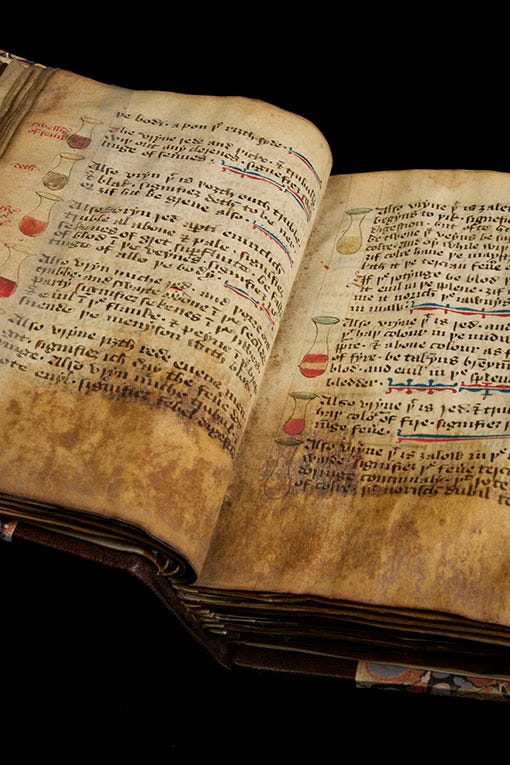Curious Cures: Medieval Medical Recipes
Discoverability of medieval medical recipes at Cambridge Libraries
The man that will of leechcraft lere
Read over this book and he may hear
Many a medicine both good and true
To heal sores both old and new
Discover a time when unusual ingredients and questionable remedies mixed with genuine curiosity about how bodies function, creating a complex and intriguing world of ritual healing, herbal recipes, stargazing and surgery. Come and see what the doctor ordered...
The Curious Cures exhibit brings together texts, diagrams and case-notes from special collections cared for by Cambridge University Library and twelve Cambridge colleges. The exhibition is curated by Medieval Manuscripts Specialist, Dr James Freeman. It is at Cambridge University Library from Saturday 29 March – Saturday 6 December 2025.
The Digital Collection
To what medical uses did medieval practitioners put dove faeces, fox lungs, salted owl or eel grease? How might one aid a man with a weak bladder or swollen testicles, or a woman with 'grinding the womb' or who 'travaileth of child'? What remedies were available to the medieval sufferer of daily complaints such as headache, toothache and aching limbs, or more grisly ailments such as 'rankled wounds' or 'canker that breeds in a man's mouth'?
186 medieval manuscripts that contain in excess of 8,000 unedited medical recipes are available here: Medieval Medical Recipes
In addition, the collection will harness cutting-edge Handwritten Text Recognition technology by using Transkribus to produce full-text transcriptions of these recipes.
This will open their contents to health researchers in the humanities and social sciences, enabling keyword and faceted searching and detailed comparative analysis on a scale not possible hitherto. This will not only help researchers to pinpoint recipes relevant to their work, but will also enable them to understand how this kind of medical knowledge evolved, how recipes were tried and tested over time, and what connections might exist between such practical recipe books and scholarly medical treatises.





When I was a kid I loved a book called "The Midwife's Apprentice," about a girl in medieval England who trains to become a midwife. The author researched a lot of medieval medicine - prayers and talismans and rituals were always part of the process. I remember a scene where the midwife yells up the birth canal to demand the child come out in the name of Christ, like she's exorcising a demon.
This post makes me curious to learn more! I'd love to see some of the recipes.
Fascinating stuff. I'd love to peruse these medieval medical recipes. I wonder how many of these were effective in part or in full.